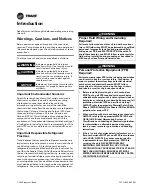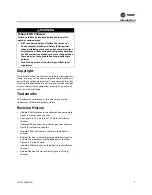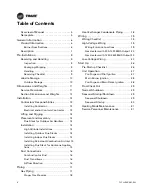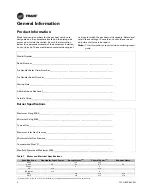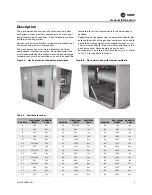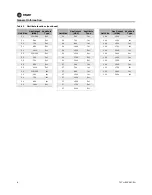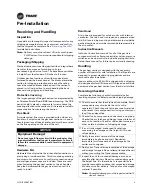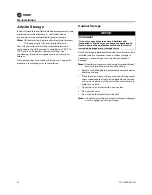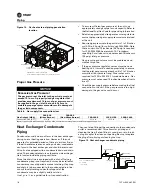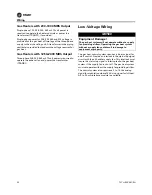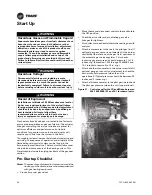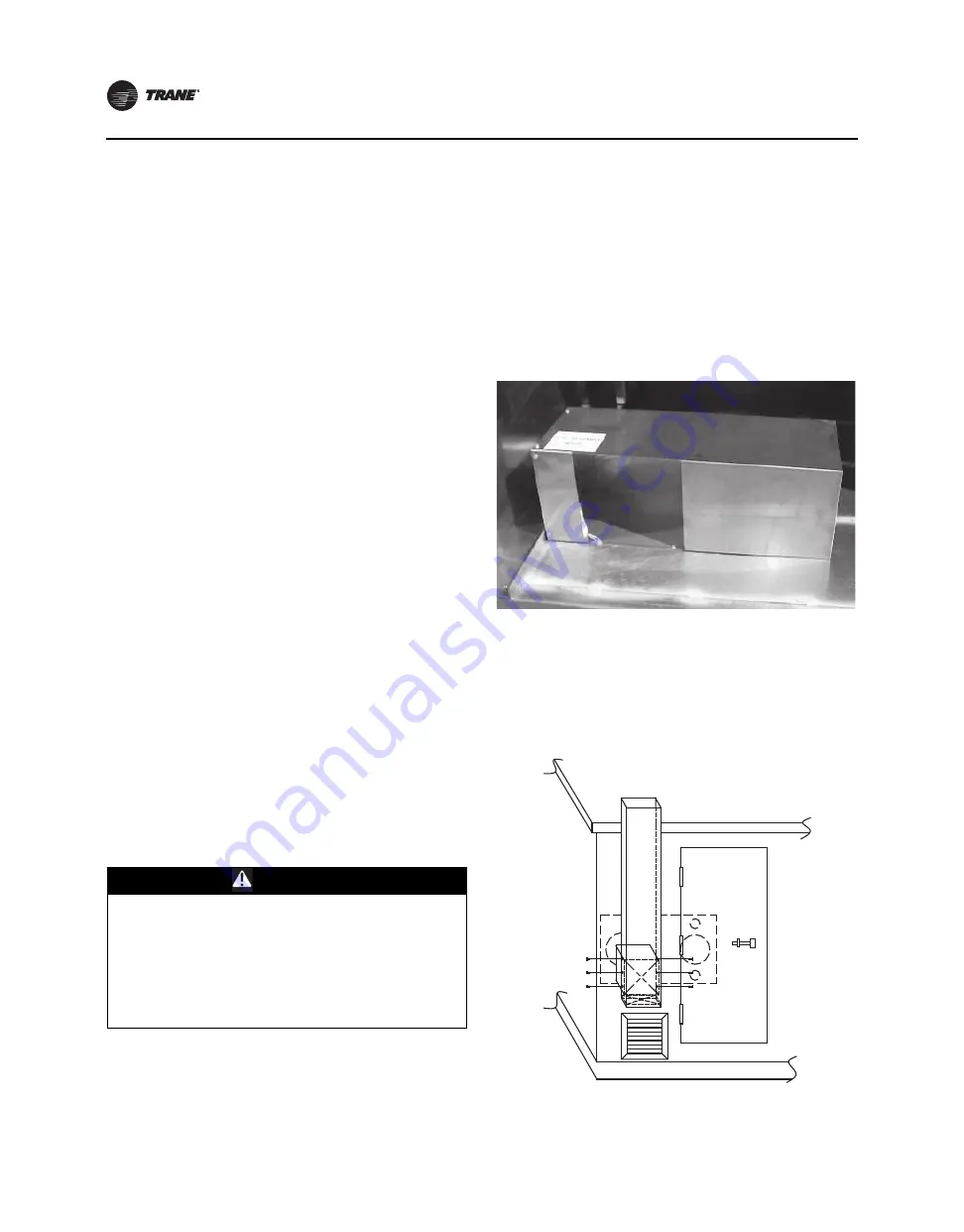
Installation
14
CLCH-SVX08C-EN
•
For VAV units, provide temperature sensors for
entering and leaving air in gas heat section.
Note:
All power and control wiring for the gas heat
section must be field-provided. All power and
control wiring for any section downstream of the
gas heat must be field-provided.
Lifting and Rigging
Refer to
CLCH-SVX07*-EN Performance Climate
Changer™ Air Handler Installation, Operation, and
Maintenance
manual for instructions on equipment
rigging and lifting. This manual ships inside the unit fan
section.
Placement and Assembly
Refer to the design engineer’s plans and submittals for the
location of the gas heat section in the air handler. The gas
heat section will arrive at the job site as an individual
section. It is not shipped with the air handler.
Hardware for fastening the gas heat section to the air
handler can be found in the unit fan section.
Final assembly of the air handler should be done at the unit
installation site. Refer to
CLCH-SVX07*-EN Performance
Climate Changer™ Air Handler Installation, Operation,
and Maintenance
manual for instructions on equipment
assembly.
Flue Stack for Outdoor Air Handlers
The flue stack for outdoor air handlers must be mounted
on the flue opening on the side of the unit. The flue stack
must be installed on the gas heat section
before
assembling the gas heat section to the air handler. It is very
difficult to remove the flue from inside the unit once the
unit is assembled.
Installation
High Altitude Installations
Adjustment of gas train linkages is not normally required.
However, for high altitude installations, adjustment to the
air-fuel linkages may be necessary for proper combustion.
Heater outputs must be derated four percent for every
1000 feet over 2000 feet above sea level. When specifying
gas heaters, the engineer should provide the MBh and
airflow required at altitude. All Trane literature is based on
nominal outputs at sea level.
It is recommended that the services of an experienced,
qualified gas heat technician be employed to adjust air-fuel
linkages for proper combustion.
Installing Outdoor Flue Stacks
The flue stack for outdoor gas heat sections ships inside
the gas heat section or in one of the other sections of the
air handler.
Attach the flue stack to the flue collar and secure it with
screws as indicated in
.
A field-provided rain hood or screen is recommended on
the flue to prevent possible blockage from bird nests and
beehives.
shows flue connection sizes for the gas heat
section.
WARNING
Hazard of Explosion!
Installations at altitudes of 3,000 feet above sea level or
higher may require adjustment of the air-fuel linkage
for proper combustion. Linkage and air-fuel adjustment
should only be done by an experienced, qualified gas
heat technician. Failure to follow these
recommendations could result in death or serious
injury or equipment or property-only damage.
Figure 5.
Outdoor air handler flue stack
Figure 6.
Outdoor air handler flue stack installation


